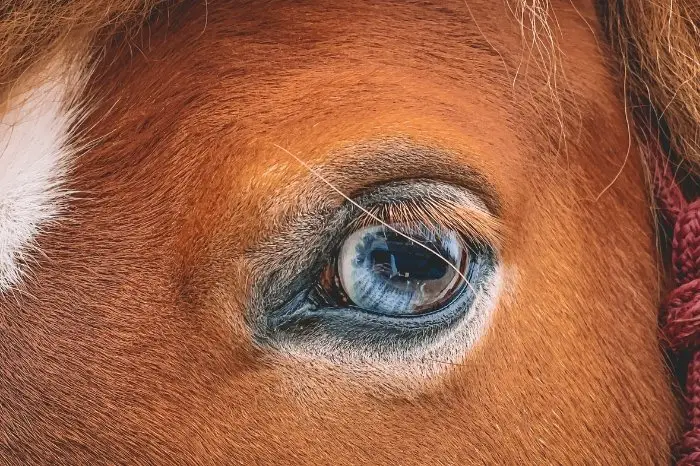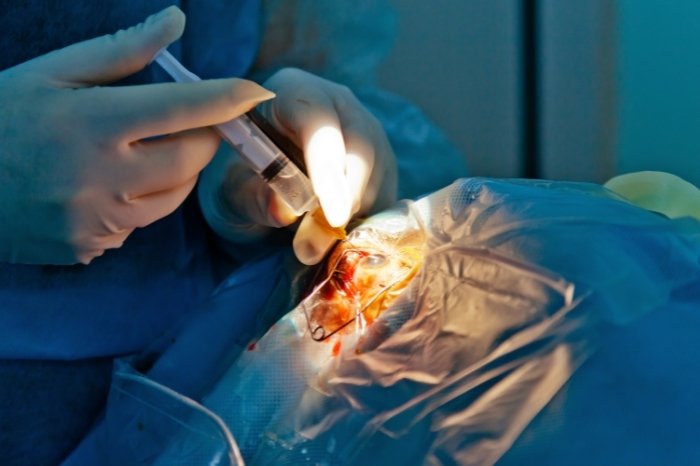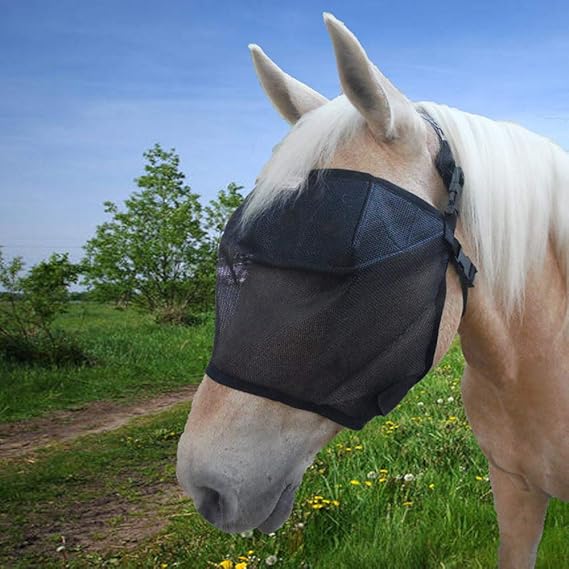Last Updated on July 19, 2022
Eye ulcers are a common occurrence in horses and treating an eye ulcer in horses is important to ensure it heals correctly. Though they are often not a serious issue, you should contact your veterinarian if you suspect your horse has an ulcer. Most of them will go away in a few days with the right treatment.
Though most eye ulcers will heal in a few days with medication, some are more serious and may even require surgery. It is important to get your horse the right treatment and care they need to heal. It is also important to understand the different types of eye ulcers as they need different forms of treatment.
What Is An Eye Ulcer In Horses?
An eye ulcer, also known as a corneal ulcer, occurs when a foreign object enters the eye or when something scratches the surface of the eye. Oftentimes, they are caused by accidental poking or things such as ingrown eyelashes, splinters, bacteria, dirt, and dysfunction of the eyelids. It involves the cornea of the eye and it can become a bacterial or fungal infection.
Ulcers can range from non-infected and very shallow to severely infected, which is known as a melting ulcer. In most cases, an ulcer can heal up within three to seven days with the right treatment. However, more serious cases can take much longer and may even require surgery depending on the severity.

Symptoms Of Eye Ulcers In Horses
When horses have an eye ulcer, they will generally show symptoms including squinting or holding the eye completely closed, watery eyes, sensitivity to light, and discomfort. Other symptoms in more serious cases include a painful, swollen red eye and a cloudy blue cornea.
If your horse is showing any symptoms of an eye ulcer, you should contact a veterinarian, as they can help determine the type of ulcer and the treatment plan. It is important to reach out to your veterinarian to make sure the eye ulcer does not worsen.
Click Here to Get Info About:
Types Of Eye Ulcers
Corneal ulcers can be divided into six different types. The different types of eye ulcers may need different treatments in order for them to properly heal.
Nonhealing (Indolent) Ulcers
Nonhealing (indolent) ulcers are caused by an abnormal adhesion of corneal epithelial cells to the anterior stroma. This is the layer of tissue found underneath the outer surface of the cornea.
Melting Ulcer
Also known as keratomalacia and stromal loss, the melting ulcer is a very serious infection of the cornea. Treatment must begin right away as within 24 hours it can turn into a perforated eye.
Corneal Mineralization
Corneal mineralization occurs from calcium deposits in the eye. Horses with this type of ulcer have either recurrent anterior uveitis or inflammation of the cornea.
Eosinophilic Keratitis
Many researchers believe that eosinophilic keratitis comes from exposure to either an allergen or parasites. In these cases, it can affect one or both eyes and it can be tricky to diagnose.
Corneal Edema
Corneal edema happens when there is fluid in the stromal layer located on the surface of the eye. This type of ulcer can happen because a corneal ulcer or dysfunction of the deepest layer of the cornea causes fluid buildup.
Corneal Infection
Corneal infections are generally caused by bacteria or fungi. Common bacteria include Staphylococcus, Streptococcus and Psudomonas and common fungi include Aspergillus and Fusarium.
Treating An Eye Ulcer In Horses
Diagnosis of the type of ulcer will help determine the type of treatment it will need. Nonhealing, corneal mineralization, eosinophilic keratitis, and corneal edema can generally be treated with systemic non-steroidal anti-inflammatory drugs. This includes phenylbutazone or flunixin meglumine equivalent.
In addition to medication, using a fly mask on your horse and turning off the lights in their stall can help the healing process. Be sure to also only use new eye medication and not one that has been opened before.
Antibiotic Eye Drops
Antibiotic eye drops are administered to help control the infection. Depending on what your veterinarian prescribes, they can be given between two to six times daily.
Atropine Eye Drops
Atropine eye drops are given to help relieve pain. They are generally administered once a day to every other day.
Anti-Inflammatory Medication
Anti-inflammatory medication is given to help the healing process and make your horse more comfortable. This may include phenylbutazone or flunixin meglumine equivalent.
Anti-Collagenase Eye Drops
Anti-collagenase eye drops are generally only given in more serious cases to help reduce further progression of the ulcer. Your veterinarian will advise the frequency they should be given to your horse.
Antifungals
In the case of a fungal infection, antifungals will be prescribed. Fungal infections often take a long time to clear up.
Surgery
In serious cases, such as melting ulcers, surgery may be performed. Surgery may be performed to remove the damaged tissue or even transplant a healthy cornea.

Treating Eye Ulcers In Horses
If you suspect your horse has an eye ulcer, contact your veterinarian. They can help prescribe the proper medicine based on the type of ulcer and your horse’s needs.
Do you have any questions regarding treating an eye ulcer in horses? If so, please ask your ulcer treatment questions in the comments.

